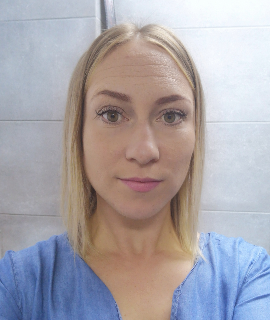Title : Biointeraction with nanoparticles - microscopic observations
Abstract:
Recently, nanotechnology is a very dynamically developing field of science. Scientists are trying to miniaturize materials in virtually every field. Nanotechnology has found application in such aspects of science as: drug and medical supplies, materials and manufacturing, environment, electronics, alternative energy sources, mechanical industry.
Nanoparticles are gaining more and more attention from all medical departments for their ability to deliver drugs in the optimal dosage range, often resulting in increased therapeutic efficacy of drugs. The attenuation of side effects and the improvement in the susceptibility of the therapeutic proteins are recorded. Recently, in addition to metal particles or their oxides, nanoparticles and sugar nanoparticles have become very popular.
Nanocellulose is a very stiff, light material and has eight times the tensile strength compared to steel. Moreover, it was found that the nanocellulose crystal is impermeable to gases, and when used as a base for foams and aerogels, it is highly absorbent and, above all, non-toxic for eukaryotic cells. As for the potential application of nanocellulose in medicine, it is used as a biomaterial for the construction of tissue restorations, extensive research is conducted on the use of nanocellulose in the fields of tissue regeneration, tissue repair, replacement implants, biosensing, drug delivery, as hemodialysis membranes, in absorbable hemostats, biocatalysts and finally as an antibacterial compound.
Our team focused on discovering the field of drug delivery of a new generation, i.e. polyepitope proteins with therapeutic and regenerative properties. In order to investigate the functionality of the interaction of obtaining cellulose microparticles with properly prepared therapeutic proteins, we decided to explore the world of electron microscopy for this purpose. TEM and SEM analysis are great tools for the registration of such microcellulose-protein biocells, which we will show in the images on the presented poster.
What will audience learn from your presentation?
studies of intermolecular interactions, the interaction of microcellulose with therapeutic proteins, the use of TEM and SEM microscopy for the analysis of intermolecular interactions, an innovative approach to the observation of intermolecular interactions and the release of therapeutic proteins from carriers, an innovative method of drug delivery


